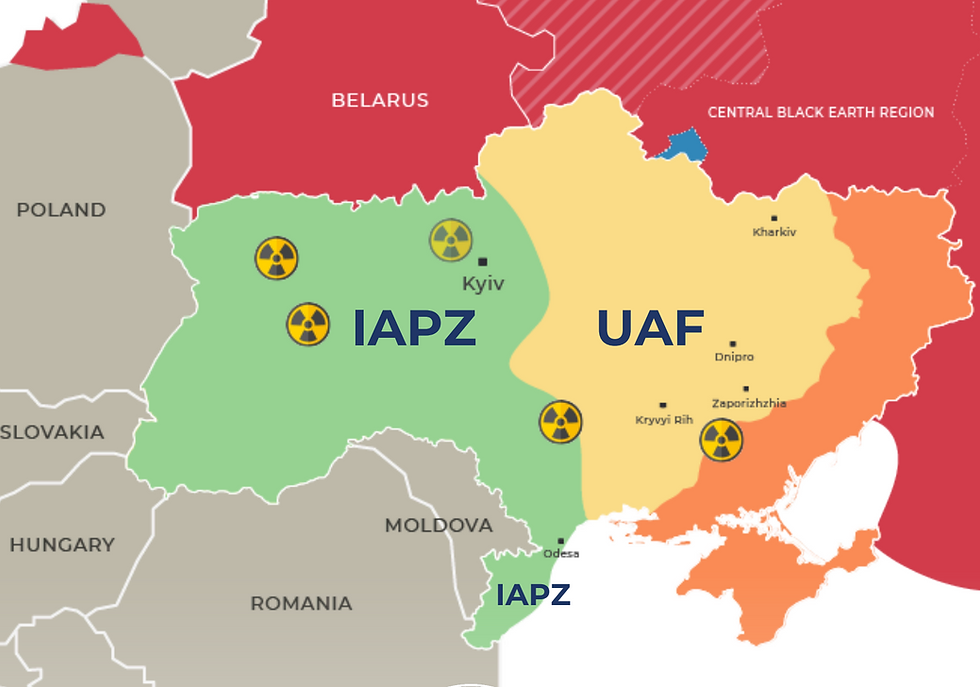Saturday in the Bar with Lemkin
- Jan 28, 2024
- 4 min read
By Michael D. Reisman

I meet Lemkin in front of 21 Zamarstynivska Street, his crash pad as a law student in the 1920s. Where he may have thought up a word that had described human activity for millennia but no human had yet spoken. Genocide.
I want to know what the man thinks about yesterday’s International Court of Justice ruling in South Africa’s case against Israel under the Genocide Convention. Since he wrote the Convention in 1948, he might have some insight.
He briskly shakes my hand, then careens down the street hauling an overstuffed satchel. I walk 15 thousand steps a day but can barely keep up. “I will tell you when we get to the law faculty,” he says.
“At which university?,” I ask. Lemkin glares at me like I’m an idiot. “It’s had many names since it was founded in 1661 by the Polish King. In my time it was Jan Kazimierz.” I barely dodge a marshrutka as we cross the street. “After Austria’s annexation it was Theresianum, then Lemberg University, then Jan Kazimierz, and finally Ivan Franko Lviv State University, which it remains today.” Google maps tells me we’re 1.6 km away – 25 minutes if you’re an Olympic speedwalker.
He grows frustrated at my torpor as we detour to the Territory of Terror Museum and observe a moment of silence. It’s International Holocaust Remembrance Day, after all.
“Mr. Lemkin, I really want to know your opinion on yesterday’s—" He grabs my arm. “I promise that by the time your piece reaches 750 words or thereabouts, you will know. And then we can have a drink.” Lemkin is giving me a wicked headache but I’ve got my eyes on the prize.
“But first I must lay the proper foundation and show you where I studied. You’ll see the hall where in 1942 Nazi Governor General Hans Frank gave a speech authorizing the liquidation of Jews in the District of Galicia.”
“I don't want to sound like a jerk, Mr. Lemkin, but I’ve read Philippe Sands’s book East West Street. Can we talk about the present?” The aroma of Kasha wafts over from the new Lviv Volunteer Kitchen a few blocks away. Many carrots probably need to be washed, peeled, and chopped. “I need to get to work, Mr. Lemkin.”
He whisks me past the opera house and down Prospekt Svobody. We sit on a bench and watch children stuffed into colorful folk costumes dance in front of a statue of Ivan Franko. He stands as if at a lectern and looks me in the eye. “Can you tell me the definition of genocide?”
“Sure.” My throat tightens like a first-year law student. “Genocide is an act committed with intent to destroy, in whole or in part, a national, ethnical, racial or religious group.” He nods. “Including killing or causing serious bodily or mental harm to members of the group.” He rapidly twirls his finger to signal: speed it up! “And deliberately inflicting on the group conditions of life calculated to bring about its physical destruction in whole or in part, and imposing measures intended to prevent births within the group, and forcibly transferring children of the group to another group.”
“Very good. I shall now tell you what I think.” He calls an audible at the line of scrimmage and is now holding forth in everyone’s favorite pub on Brativ Rohatyntsiv.
“The decision of the International Court of Justice was correct for three reasons.” The well-lubricated crowd is unprecedentedly silent as it takes in Lemkin's jurisprudential tone poem.
“First, as painful as it is for me as a Jew to admit, the court properly held that it had jurisdiction over the case. Obligations under the Genocide Convention apply to all 153 signatories – including Israel and Palestine – and are non-reciprocal.” A guy in a camo jacket asks for a translation, which annoys Lemkin. “You don’t get to break the law just because you think the other guy is a criminal!” He tries to smooth the creases in his wrinkled suit.
“Second, the court properly declined to rule that Israel committed genocide. But along with the Israeli judge – a Holocaust survivor – I agree it was proper to order Israel to take steps to prevent and punish the incitement of genocide against Palestinians in Gaza, and to increase humanitarian aid. The Court also properly called for the immediate and unconditional release of hostages held by Hamas and other armed groups.” Camo jacket guy asks how the hell the ICJ is going to enforce all of this. Lemkin shrugs his shoulders and raises his palms to the ceiling.
“Finally, the court’s ruling was consistent with its order of 16 March 2022 that the Russian Federation suspend its military operations in Ukraine, which it launched under the pretext of genocide. You know, in 1953 I gave a speech in New York about the Soviet genocide in Ukraine in the 1930s and 1940s, which has been translated into 33 languages.” (https://holodomormuseum.org.ua/wp-content/uploads/2022/12/Lemkin.pdf). A trio of Americans shout “Slave-y Yoo-Krane-y!” Lemkin smile-winces then announces the proceedings adjourned due to curfew.
To be continued?




